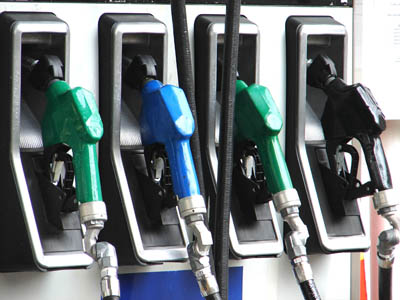Special topics
 Deregulation of Petroleum down stream business has generated price tussle among Oil Marketing Companies (OMCs), at the fifth consecutive price review which spans August 16, to August 31.
Deregulation of Petroleum down stream business has generated price tussle among Oil Marketing Companies (OMCs), at the fifth consecutive price review which spans August 16, to August 31.
Ghana News Agency (GNA) monitoring team observed that most OMCs were reluctant to announce their price for the review.
Ghana Oil Company Limited (GOIL) which has consistently pegged fuel prices lower than other OMCs became the main target for fuel price tussle which was keen among the major players.
The fifth consecutive price review figures made available to the GNA by some OMCs revealed a marginal increment in prices of both petrol and diesel.
Engen Ghana Limited is quoting GH¢ 3.36 per litre for Petrol and GH¢ 2.94 per litre for Diesel across its 25 filling stations nationwide; and GOIL is citing GH¢ 3.379 per litre for Petrol and Diesel GH¢ 2.948 per litre.
Shell Ghana Limited is also quoting GH¢ 3.490 per litre for petrol and Diesel GH¢ 3.000 per litre; and Universal Oil Company Limited charging GH¢ 3.440 for petrol and GH¢ 2.963 for Diesel.
Total Ghana Limited has also pegged the price at GH¢ 3.379 per litre for Petrol and Diesel GH¢ 2.948 per litre; Star Oil Company Limited, GH¢ 3.429 per litre for Petrol and GH¢ 2.995 per litre for Diesel; and Allied Oil Company Limited has pegged petrol at GH¢ 3.439 per litre and GH¢ 3.000 per litre for diesel.
Fraga Oil Company Limited is quoting GH¢ 3.400 per litre for Petrol and GH¢ 2.970 per litre for Diesel; Frimps Oil Company Limited is collecting GH¢ 3.400 per litre for Petrol and Diesel GH¢ 3.15 per litre.
Sky Petroleum Company Limited has pegged the price of Petrol at GH¢ 3.50 and Diesel GH¢ 3.30; and EV Oil Company Limited is also quoting GH¢ 3.4323 per litre for Petrol and GH¢ 3.000 per litre for Diesel.
The prices review of petroleum products is in conformity with the de-regulation of petroleum products, which took effect from June 16.
Mr Patrick Kwame Akpe Akorli, GOIL Managing Director, told the GNA in an interview that consumers are the greatest beneficiaries of the de-regulated regime.
He said contrary to speculation that a de-regulated regime would create room for the OMCs to form a cartel to cheat consumers; “now we are all experiencing healthy industrial competition among the over 80 OMCs”.
The price was increased by four per cent on June 16; and on July 2 increased by 15 per cent but on July 16, the price was reduced by 14 per cent and August 1 reduced by four per cent, until the current review, which has witnessed a marginal increment of about four per cent.
According to the National Petroleum Authority, document made available to the GNA the deregulation process has been undertaken in phases to ensure a smooth transition into a liberalised market.
It explained that the deregulation means taking government out of control and regulation of petroleum down stream business.
The process started in September 1996 when TOR assumed the responsibility for crude oil and finished products procurement and importation.
Currently Government is fully involved in the petroleum business. It runs Tema Oil Refinery (TOR) as a public monopoly for importing crude oil for the domestic market; and it is also responsible for setting of petroleum prices.
Under deregulation Government involvement would cease except to ensure a level playing field is created for stakeholders to efficiently and effectively undertake their activities under the deregulated market environment.
Under deregulated regime the private sector would participate in the importation of petroleum product and crude oil for processing at TOR at a fee; and also in the provision of privately owned and operated energy infrastructure and services in the petroleum downstream sector.
Government would no longer be directly involved in the determination of petroleum prices;
A petroleum priced determination mechanism (a prescribed pricing formula) would be used to determine the ex-refinery price of petroleum products based on import parity benchmark.
The OMCs/Liquefied Petroleum Gas Marketers operating margin would be managed in the initial phase of the programme and thereafter they would set their own margins and ex-pump prices for effective competition among themselves.
Parliament would continue to determine the petroleum taxes and levies by the issuance of an Act of Parliament.
The deregulation of the petroleum downstream sector is essentially government decision which was approved by the Parliament of Ghana as part of the 2004 budget.
Source: GNA